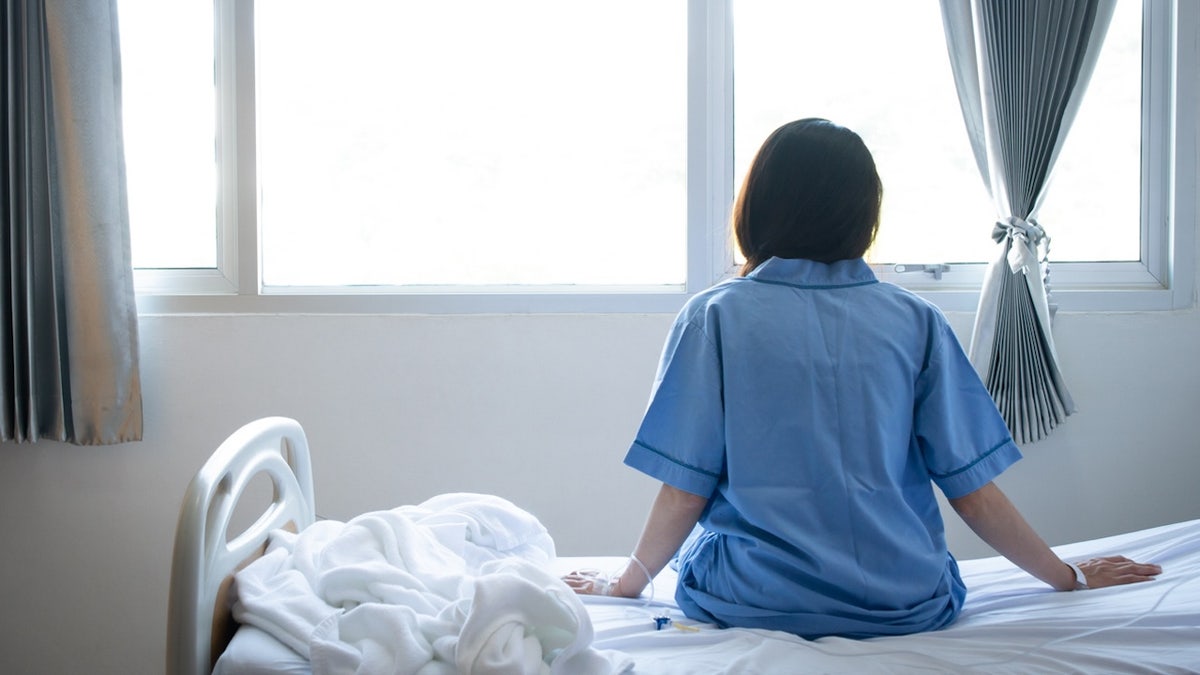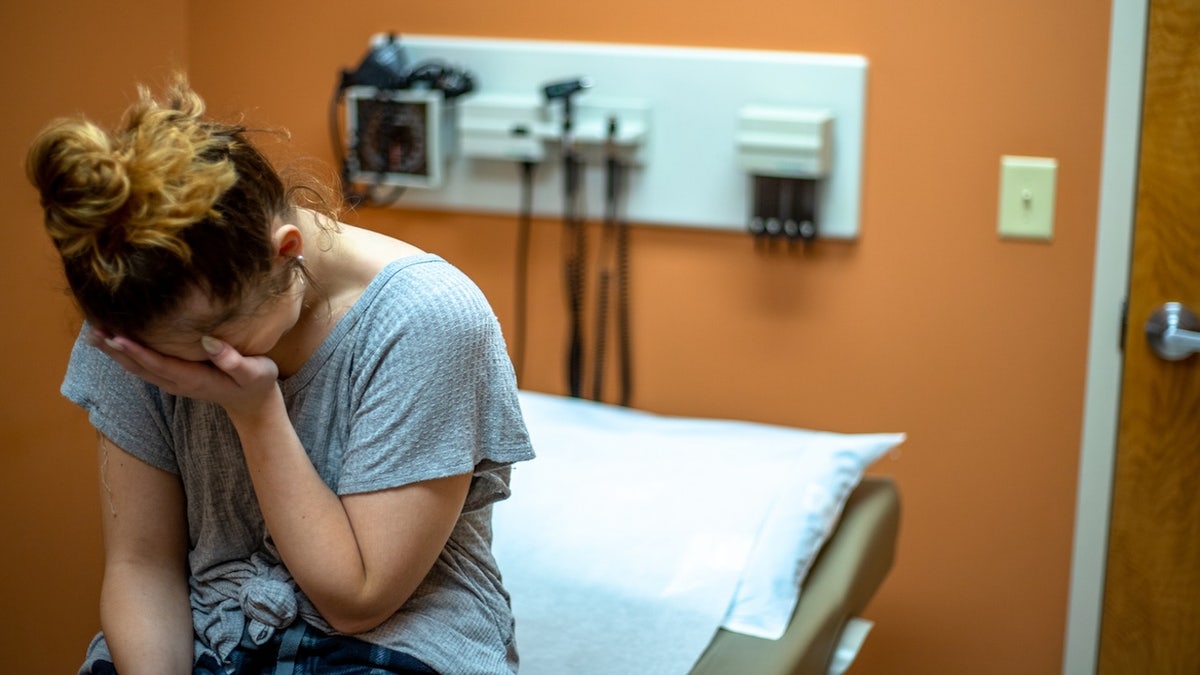Nurses at Seattle Children’s Hospital say they feel unsafe at work and have demanded protection.
Police responded to multiple violent incidents in November at the hospital’s Psychiatric and Behavioral Medicine Unit (PBMU), according to the Washington State Nurses Association (WSNA), which represents over 2,000 registered nurses in the state.
On Nov. 7, police were called when patients “turned over carts, used a pole to swing at people, broke windows and held a nurse in a chokehold,” a WSNA press release stated.
LESS THAN HALF OF NURSES ARE ‘FULLY ENGAGED’ AT WORK, WHILE MANY ARE ‘UNENGAGED,’ NEW REPORT REVEALS
The Seattle Police Department detailed that incident in a blog post on its website the next day, noting that a 14-year-old boy was arrested for assaulting medical staff in the psychiatry and behavioral medicine unit of the hospital.
“The suspect … armed himself with a metal pole, began destroying property and attempted to locate and harm another teen,” the police department’s blog post said. “The suspect then attacked a staff member and put them in a headlock.”
Around that same time period, a nurse was “choked, struck in the head 16 times and nearly lost consciousness” after an attack by a patient, according to the WSNA.
On Nov. 17, police reportedly returned to the hospital after patients began throwing ceiling tiles at staff members.
NURSE WHO DIED BY SUICIDE INSPIRES CALLS FOR CHANGE IN HEALTH CARE SYSTEM: ‘NEED TO TAKE CARE OF EACH OTHER’
Some other complaints filed by nurses within the unit were about patients biting staff members, kicking them in the head and attempting to use medical equipment as weapons, the WSNA stated.
“As staff, we know what we need, and that’s security,” Natasha Vederoff, one of the nurses in the unit, told Fox News Digital in a recent video interview.
“We’re asking for people to help our staff feel safe so we can do our job and get fair compensation for the work we’re doing,” she said.

After Fox News Digital contacted the hospital for comment, a Seattle Children’s Hospital spokesperson sent a statement.
“Our country is facing an escalating youth mental and behavioral health crisis and the demand for services remains alarmingly high,” the Dec. 5 statement to Fox News Digital noted in part.
“This is not a temporary issue. We’re asking for permanent change because the problem is not going to go away anytime soon.”
“The safety, security and well-being of Seattle Children’s patients and workforce is our top priority and we have intensified efforts over the past several months to address this demand.”
The statement went on, “While these critical steps support the immediate safety of our workforce and patients, Seattle Children’s cannot solve this crisis alone.”

“This work is ongoing, and we are actively collaborating with external partners at the local, state and federal level to identify and eliminate barriers and find rapid solutions to address the extremely high number of patients seeking care for mental and behavioral health crises across the state.”
‘Vicious cycle’
Regular staffing shortages have been a challenge for some time in psychiatric care, noted Amy Lamson, who has worked in the unit for more than six years — but the problem got much worse during the COVID pandemic, she said.
“We have not been able to catch up in any capacity since then,” she told Fox News Digital in an interview.

“It has been a vicious cycle,” Lamson continued. “The less staff we have, the less expertise we have on the floor, and the less able we are to manage unsafe behaviors — and then staff want to leave because they do not feel safe in the workplace.”
There are conflicting statements about the nature of the current nursing shortage.
In a 2022 letter, the American Hospital Association estimated that half a million nurses would leave the field by the end of that year, which would result in a total country-wide shortage of 1.1 million.
PSYCHIATRIST SHARES 4 WAYS TO SUPPORT YOUR CHILD THROUGH LIFE’S UPS AND DOWNS ON WORLD MENTAL HEALTH DAY
National Nurses United (NNU), however, has released statements that there is not a shortage of nurses — and that, instead, the problem is “a failure by hospital industry executives to put nurses and the patients they care for above corporate profits.”
While there are plenty of nurses to fill jobs, NNU stated that there is “a shortage of nurses who want to work under current conditions.”
Demand outpaces capacity, nurses say
Contributing to the crisis is the extended stay of many patients today, the nurses said.
The hospital’s Psychiatric and Behavioral Medicine Unit is intended to serve as “short-term crisis stabilization” for three to seven days, but nurses report that some children are staying on the unit for months — or even as long as a year — due to a shortage of residential care beds.
Lamson told Fox News Digital that the increase in injuries began to worsen during COVID, when many outpatient beds and residential facilities closed.

“With fewer resources in the community for these patients, there are longer inpatient stays,” she said.
Over the last year, there has been an “exponential increase” in safety events and staff injuries, said Lamson.
Henry Jones, another nurse in the unit, noted that a third of the long-term residential beds in the state have closed since the pandemic, and demand has only gone up.
“It’s simple supply and demand — the demand far outstrips our capacity to provide care.”
“It’s simple supply and demand,” Jones told Fox News Digital. “The demand far outstrips our capacity to provide care.”
Jones said he doesn’t believe the staff would be seeing this level of aggression and violence if the patients’ length of stay matched the design of the unit.
“The more isolated you are, the more likely you are to use aggression,” he told Fox News Digital.
Brayden Schander, another nurse on the unit, told WSNA that the nurses have been forced into this situation.
“If the state and nation are not going to change, Seattle Children’s needs to build a residential facility to meet long-term care needs.”
Jones told Fox News Digital, “This is not a temporary issue. We’re asking for permanent change because the problem is not going away anytime soon.”
Patients are not to blame, nurses say
The nurses in the PBMU emphasized that the troubled youth in the facility are not to blame for the current crisis.
“Our patients have suffered severe physical, sexual and emotional abuse,” Joshua Pickett, a registered nurse at Seattle Children’s, told Fox News Digital.
COLORADO CARDIAC NURSE, AFTER THREE HEART ATTACKS, OFFERS SURVIVAL TIPS: ‘LISTEN TO YOUR GUT’
The nursing staff expects to see certain unsafe behaviors, he noted, as it’s an “expression of pain” and a way for the youth to communicate their needs.
“We don’t want to demonize these behaviors — the reason we are so invested is because we want to help these kids,” he said.
But “our ability to address unsafe behaviors would be greatly increased if we just had adequate resources to do so,” he also said.

During one of her recent shifts, Vederoff said she had to help hold down a potentially violent child.
“I had to stop myself from crying … knowing that this kid would not be in the situation right now if they had the resources they needed — and knowing that we have failed them.”
Pickett agreed, adding, “All too often, rather than healing the trauma that these kids have faced, we’re just retraumatizing them in order to keep people safe rather than creating an environment that is therapeutic and helpful for them.”
Call for action
Pickett sent a call for action to the hospital’s leadership team on Nov. 17 on behalf of the 44 nurses in the unit.
In the letter, which was shared with Fox News Digital by the WSNA, the nurses described the unit as “severely unsafe” and at a “critical point of failure.”
BURNT OUT AND GETTING OUT: AMERICAN HOSPITALS STRUGGLE WITH INCREASING SHORTAGE OF NURSES
“The ongoing deficient and inadequate intervention from the hospital has contributed to innumerable injuries, a diminishing workforce and deteriorating morale,” the letter stated.
“Staff work in a persistent state of fear as they come into each shift expecting violence and debilitating abuse.”
The letter went on, “The level of violence that the unit is expected to tolerate has directly influenced rates of staff turnover and pushed the unit into a detrimental staffing crisis.”

To ensure the safety of staff and patients, the nurses made several specific demands of Seattle Children’s Hospital, which included:
- Three safety officers present during the day and one overnight
- Additional staffing roles, including a break nurse, resource nurse and safety coach
- Maximum ratio of eight patients to every one nurse
- Double pay for all overtime and mandatory shifts
“Let us not wait for the preventable death of a patient or staff to have our voices heard,” the letter from the nurses said.
“Rather than healing the trauma that these kids have faced, we’re just retraumatizing them in order to keep people safe.”
On Dec. 13, the Washington State Nurses Association, plus some of the nurses from the PBMU and Seattle Children’s leadership, met to discuss the status of the actions and interventions that are in progress.
SURGEON GENERAL’S ADVISORY ON SOCIAL MEDIA AND YOUTH MENTAL HEALTH COMES AMID ‘REAL-TIME EXPERIMENT’
Pickett shared with Fox News Digital some of the outcomes of that meeting.
“Mandatory overtime and volunteering to stay over are now both double pay,” he said. “Security will be a permanent fixture on the PBMU and a new role will be created and rolled out by the first week of February.”

Hospital leadership also committed to hiring travel BHTs (behavioral health technicians) and RNs to fill current roles in the PBMU, but Pickett said they are “refusing to create the new nursing and PMHS (pediatric primary care mental health specialist) roles we requested, which were essential to our demands.”
“Let us not wait for the preventable death of a patient or staff to have our voices heard.”
Seattle Children’s Hospital also provided an update to Fox News Digital regarding the Dec. 13 meeting.
“Last month, Seattle Children’s opened an Emergency Operations Center in response to extraordinarily high mental health patient volume,” a spokesperson said.
CLICK HERE TO SIGN UP FOR OUR HEALTH NEWSLETTER
“Since then, countless teams and individuals have collaborated to develop new processes and implement operational improvements.”
“As a result, Seattle Children’s is better positioned to meet future surges and care for all patients who need us, but the work is ongoing,” the statement continued.
“I could make the same amount of money [in another job] and not be hit every day, but I care about this work.”
“Seattle Children’s — particularly the Psychiatry and Behavioral Medicine Unit (PBMU), emergency department (ED) and the groups that support them — is still experiencing the impacts of the national youth mental health crisis. Leaders across the organization will continue to support our workforce, patients and families by listening, advocating and championing youth mental health.”

The nurses agree that this is a national crisis.
“Our hospital is a lens into what is happening nationally,” said Pickett.
They believe, however, that steps can be taken at the same time to remedy the safety issues at Seattle Children’s.
“I could make the same amount of money [in another job] and not be hit every day, but I care about this work,” said Vederoff.
“I just want my leadership and my managers in this hospital to show that they value this work, too, and they value me.”
For more Health articles, visit www.foxnews.com/health.
Read the full article here